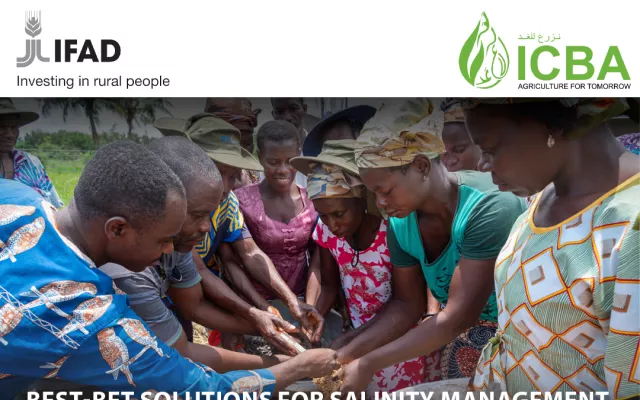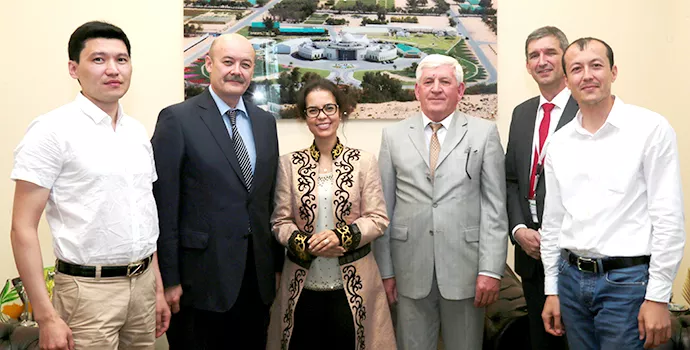IDB, ICBA join forces to improve water management in Kazakhstan
6 October 2016
The International Center for Biosaline Agriculture (ICBA) and the Islamic Development Bank (IDB) have formed a partnership with the Water Resources Committee of Kazakhstan to strengthen operational water management in the Central Asian republic through improved national data availability.
As climate change poses risks to future availability of water resources in Central Asian countries, including Kazakhstan, governments need to think of better ways of managing water resources. Decision- makers will require accurate and up-to-date data to devise effective policies and strategies.
Decisions should only be based on and informed by knowledge about available water resources such as dam storage, river and canal flows.
In Kazakhstan the Water Resources Committee carries out the important functions of managing rural, urban and agricultural water resources, including necessary infrastructure.
The committee is also in charge of day-to-day monitoring and providing information to the government. However, monitoring activities are currently focused mainly on the operational level. This means measurements may not always be available for strategic decision-making at the regional and national levels.
One way to make monitoring more efficient and suitable for strategic decision-making is to use a geographical information system (GIS), combining spatially and temporally variable data in a system that makes it easier, and more practical to evaluate the available information.
As the government of Kazakhstan aims to improve management of water resources, the committee is partnering with international research and development institutions like ICBA and IDB to build a more efficient water management system in the country.
Through an IDB-funded irrigation and drainage rehabilitation project in southern Kazakhstan, the committee and ICBA will work together to introduce and implement best water management practices and technologies.
As part of this collaboration, senior committee officials and representatives of the government of Kazakhstan visited the ICBA head office on October 4-6, 2016, in Dubai, UAE, and the IDB headquarters on October 8-11, 2016, in Jeddah, Saudi Arabia, to discuss opportunities of a spatial and temporal data monitoring and management system.
During the first leg of their tour in Dubai, the committee representatives met ICBA’s management and senior scientists to discuss challenges in monitoring natural resources and opportunities that automated monitoring and GIS visualization might offer. The discussions also focused on such issues as water resources mapping and monitoring, soil mapping, data management through databases and data access through interfaces, strengths of GIS and remote sensing.
The committee representatives also visited ICBA’s research facilities to learn more about water management systems and examples from other projects that ICBA is involved in related to monitoring, GIS, remote sensing and policy support. They also paid a visit to the Environment Agency - Abu Dhabi (EAD) groundwater monitoring unit to exchange experiences and ideas about national water resources monitoring programs in the UAE.
During the second leg of their tour, the committee representatives and government officials visited the IDB headquarters to discuss practical aspects of funding for the project and possible development projects in the water sector in Kazakhstan.
For the government of Kazakhstan, and the committee specifically, a data management and analysis tool using GIS can provide an efficient way to store information, and make up-to-date data available to the highest level of decision-making authorities. Reservoir levels that are shared during the winter and summer will provide farmers with information on how to best manage their irrigation. Moreover, decisions on availability of drinking water vis-à-vis agricultural water can be made in advance when urban census data are combined with agricultural planning data and the current seasonal water availability.
It is hoped that this collaboration will lay the groundwork for future joint ventures related to water resources management in Kazakhstan and develop better climate change adaptation and mitigation strategies.










